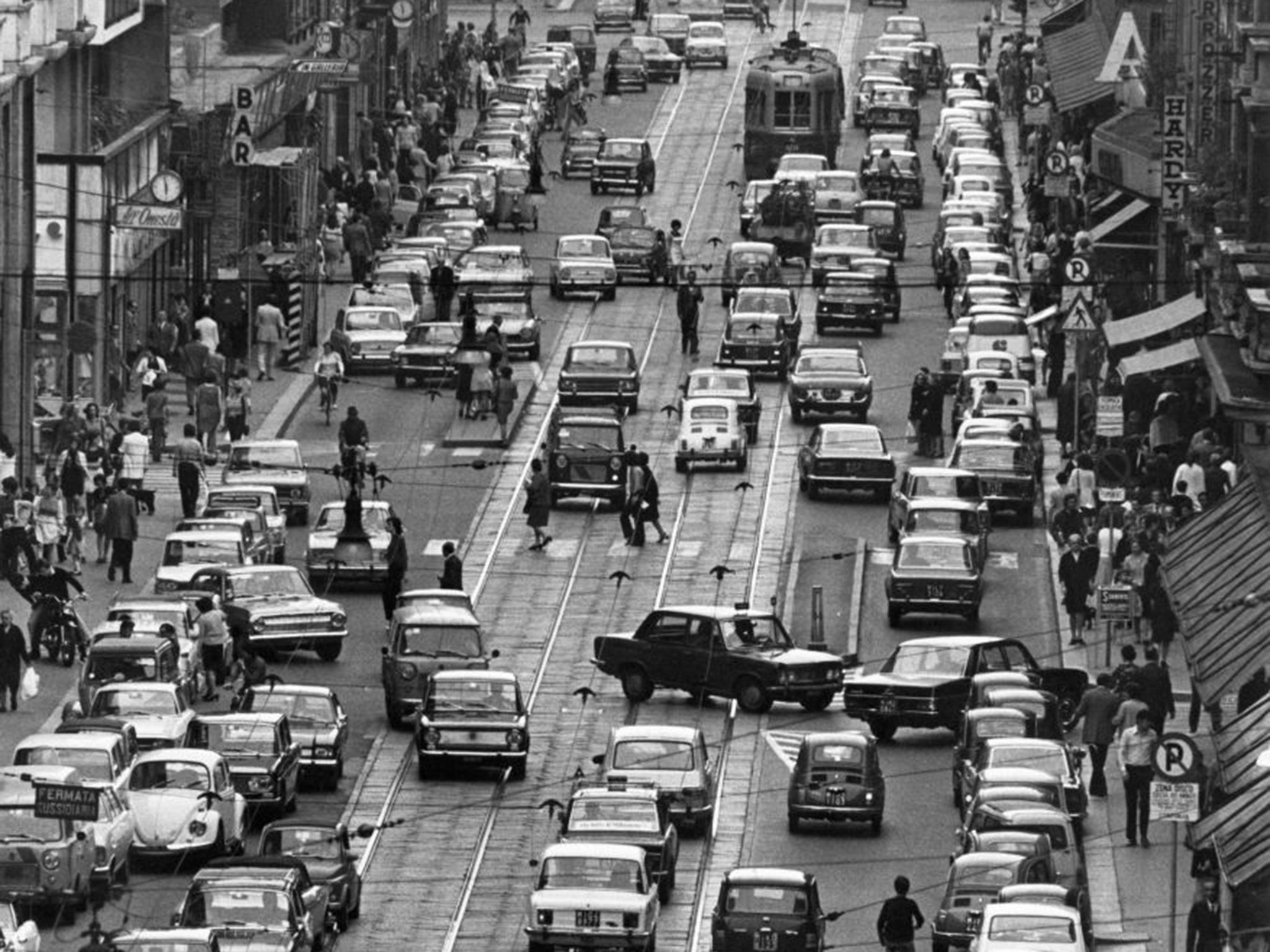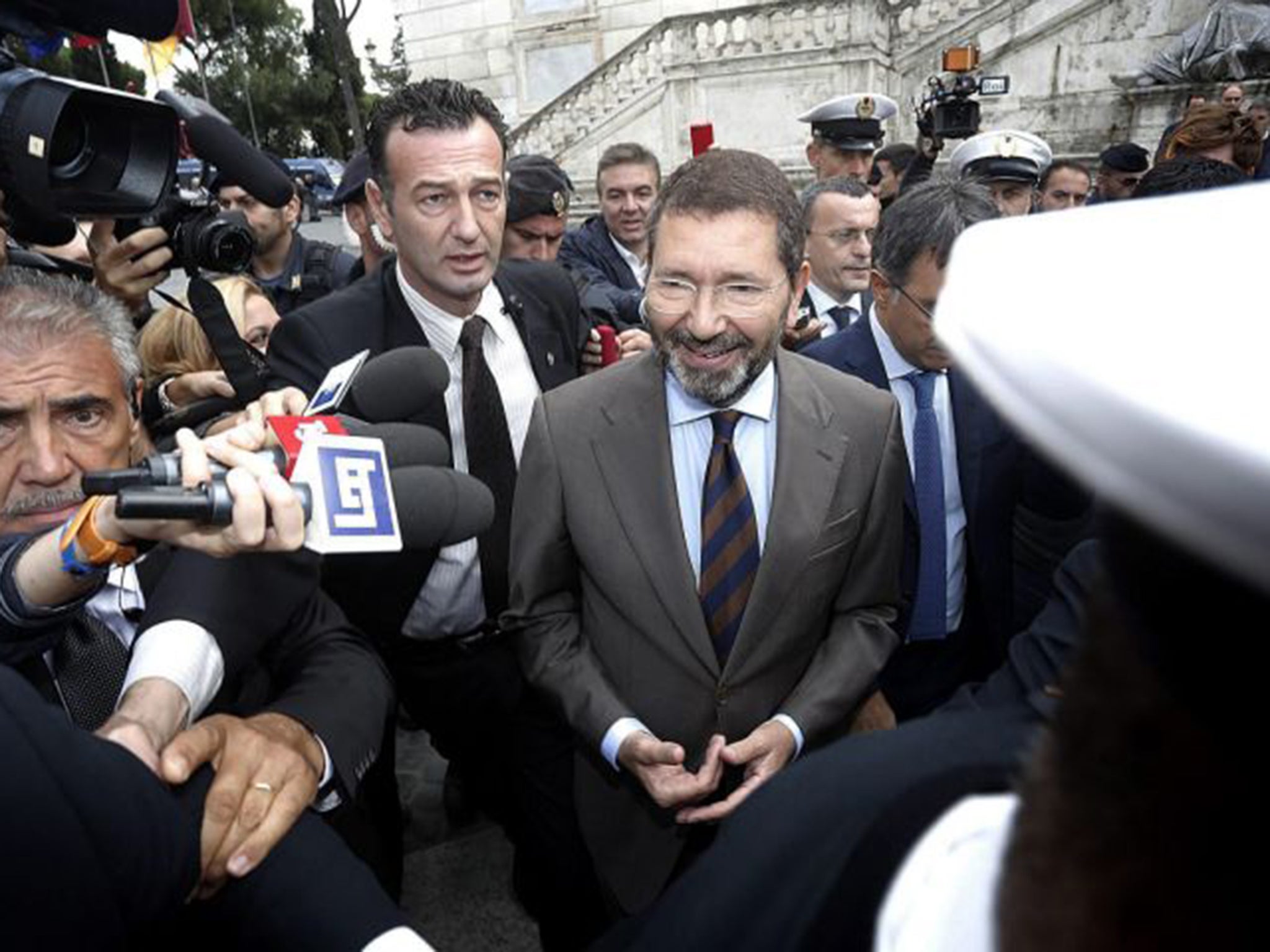Rome's campaign to drive cars off the road suggests an end to Italy's love affair with the automobile
But limited time and the powerful taxi lobby means the Eternal City’s out-going mayor has a battle on his hands to implement a traffic ban

Your support helps us to tell the story
From reproductive rights to climate change to Big Tech, The Independent is on the ground when the story is developing. Whether it's investigating the financials of Elon Musk's pro-Trump PAC or producing our latest documentary, 'The A Word', which shines a light on the American women fighting for reproductive rights, we know how important it is to parse out the facts from the messaging.
At such a critical moment in US history, we need reporters on the ground. Your donation allows us to keep sending journalists to speak to both sides of the story.
The Independent is trusted by Americans across the entire political spectrum. And unlike many other quality news outlets, we choose not to lock Americans out of our reporting and analysis with paywalls. We believe quality journalism should be available to everyone, paid for by those who can afford it.
Your support makes all the difference.To leave his own mark on the Eternal City, Rome’s outgoing mayor Ignazio Marino still aims to realise one of his most radical election pledges before he vacates the town hall at the start of November.
The promise is to ban cars and all traffic from the city’s most famous and evocative thoroughfare, the Via dei Fori Imperiali, which runs from the Colosseum to Piazza Venezia. Limited time – just 20 days – and the powerful taxi lobby will mean that Mr Marino’s final gift to the city is going to be bitterly opposed, at least for the time being.
The fact that partial pedestrianisation has already been introduced – and widely applauded by much of the city and its visitors – suggests, nonetheless, that a change is in the air. Italians’ love affair with the car, and their insistence on driving – and parking – whenever and wherever they like is on the wane.

From the cult of the exotic sports car created by Ferrari and Lamborghini, to the primacy of roads rather than railways dictated by the power of its mass-market producer Fiat, automobiles have been an Italian obsession for the past 50 years.
But a combination of environmental and financial concerns is putting paid to that. The revolution is well underway in the industrial north – the part of Italy that originally put its car industry on the map.
In Milan more than 300,000 residents – nearly one in 10 – belong to car sharing schemes, according to the Environment Ministry’s new National Observatory on Sharing Mobililty. Green campaigners say that overall time spent in cars has fallen and they hail a 38 per cent fall in PM10 particulate levels in four years, in what was previously one of Italy’s and Europe’s most polluted cities.
Car sharing is growing quickly in Rome, Turin and Florence. In the country as a whole, one person in 100 now uses a car sharing scheme – some way behind Milan. Nonetheless, the figure represents a 14-fold rise in car sharing in just five years.
Jennifer Clark, an expert on the Italian car industry and the author of Mondo Agnelli: Fiat, Chrysler, and the Power of a Dynasty, said financial pressure was killing off Italian’s special relationship with the car. “In terms of Italians and cars, we can say that it’s the end of the affair. Three years’ of recession and no jobs mean that young people in particular can’t afford cars,” she said. “Italians also have to pay the highest petrol tax. So it’s not surprising that car sharing is up and car sales are down.”
She said changing social trends were another factor. “Traditionally, the car has had a special place in Italians’ affections. In the post-War boom it was a status symbol. And if you were a boy you couldn’t hope to get a date if you didn’t have a car. Now young people meet and chat on dating apps. You might say that smartphones are killing off the car, too.”
Marco Percoco, a professor of transport economics at Milan’s Bocconi University, agreed that car sharing was a sign of the changing times. He said the city’s acceptance of congestion charging was another indication that the car was losing its special place in Italians’ affections, although he said the increasing number of surprisingly polluting scooters had offset the environmental gains.
He said the biggest revolution, though, was bike sharing, which has taken off in a huge way in the city. “Bike-sharing points are all over Milan now,” he said. Other cities are now following suit, although Rome is a notorious exception: its bike sharing scheme collapsed in ignominy in six months after its bikes were stolen or fell to bits. Elsewhere, however, Palermo is introducing its own scheme this month; the bicycles will have GPS tracking to deter thieves.
The exotic creations of Ferrari, Maserati and Lamborghini remain a source of pride for many Italians – and a big source of export earnings. But for most Italians, getting from Ancona to Bologna has always involved squeezing into a Fiat hatchback.
Italians also have to pay the highest petrol tax. So it’s not surprising that car sharing is up and car sales are down
Even puffed up bureaucrats are having to wave goodbye to flashy motors. Last year the government of Matteo Renzi announced it was selling-off hundreds of chauffeur-driven, grace-and-favour cars known as “auto blu” – dark blue executive saloons used to ferry thousands of state officials to work – and in some cases to the shops or the theatre. The Defence Ministry alone put nine Maseratis and eight BMWs up for sale on eBay.
Another trend, “ride sharing” has seen Italians’ concerns over the cost of motoring combine with one of their great strengths – sociability. Italians have taken to BlaBlacar, which allows them to hitch a ride at a set price with car-owners planning longer journeys. The “fare” is usually less than a train ticket.
The passengers’ only obligation, apart from contributing to petrol and tolls, is chatting and keeping the other occupants company. Millions of Italians who aren’t car owners are happy to oblige.
Join our commenting forum
Join thought-provoking conversations, follow other Independent readers and see their replies
Comments